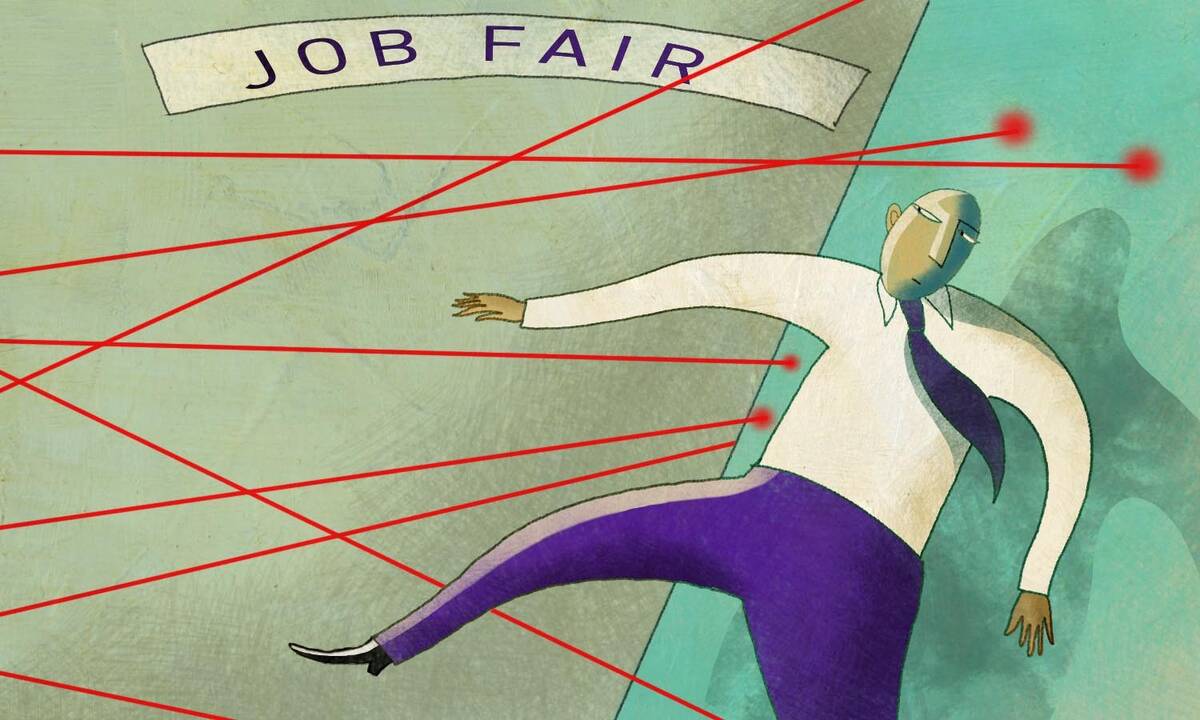Organizations Policy Jan 21, 2022
It May Be Time to Reconsider That Noncompete Agreement
Federal regulators are cracking down on hiring practices that restrict employees’ wages and ability to work for competitors. Here’s what companies should know.

Yevgenia Nayberg
These days, with the Great Resignation peeling off workers right and left, companies may be tempted to get creative in how they retain employees.
But some popular strategies can land firms in legal hot water. Regulators are increasingly taking aim at agreements that restrain employees’ ability to switch jobs or command higher wages.
“Starting with updated compliance guidelines in 2016, there’s been a renewed concern and emphasis on antitrust enforcement in labor markets where historically regulators weren’t overly concerned,” says R. Mark McCareins, codirector of Kellogg’s JDMBA program and a clinical professor of business law. “Whether it’s wage-fixing, no-poach, or noncompete agreements, regulators are looking to other areas of concern.”
One impetus for regulators to dig deeper into noncompete agreements—rather than the usual focus areas like market concentration or bid-rigging—came from a rather surprising industry: fast food.
“If you’re making sandwiches at a Jimmy John’s, the company argued that you have access to trade secrets such as how much mayonnaise to put on the sandwich,” McCareins. “So Jimmy John’s would have a noncompete with sandwich makers and say, ‘You can’t go to work for another sandwich maker for two years in your area.’”
While the company eventually dropped noncompete clauses from its contracts, McCareins says, the very idea that low-wage workers were being subjected to them became a lightning rod in the debate over whether companies might be misusing these agreements.
State attorneys general have increasingly gotten into the act, and the Biden administration has further ratcheted up enforcement via executive order.
Here’s what companies should understand about navigating the current hiring enforcement landscape.
You May Be More Exposed Than You Think
Aggressive new enforcement from federal regulators is putting companies that have traditionally avoided scrutiny for hiring practices under a lot more pressure. No firm is too small to evade antitrust enforcement.
“We see patchwork, state-by-state enforcement in other areas, such as board diversity,” McCareins says. “But we’re not seeing that here. The feds frankly don’t care if you’re a $10 billion conglomerate that operates nationally or a $50 million widget company in Beloit.”
Moreover, while regulators have traditionally examined potential anticompetitive practices of direct, horizontal competitors, the current regulatory focus is much broader. Today, a lack of direct competitors may not be enough to stay off the radar.
“The first order of business is to figure out who within your organization is on the front lines of these types of issues.”
— Mark McCareins
“If I’m a gadget manufacturer in Beloit, both the widget manufacturer and I may need welders,” McCareins says. “I may be tempted to contact the widget CEO and say, ‘we can at least solve the problem temporarily by agreeing not to poach each other’s welders, or fix wages so at least we can stop the bleeding until we figure out how we get more welders into our community.’”
Resist the temptation, says McCareins. What may seem like a way to solve a short-term labor shortage risks drawing the attention of the DOJ and the FTC.
Train Your Managers
In most companies, senior leaders have historically taken responsibility for compliance with antitrust regulations. But in a labor environment where noncompete or nonpoach agreements or wage-setting questions land in many companies’ human resources departments, it is imperative that compliance not fall through the cracks.
“Many HR managers or general managers who are dealing with labor shortages have never really been exposed to antitrust compliance topics,” McCareins says. “So the first order of business is to figure out who within your organization is on the front lines of these types of issues.”
This may mean training your HR lead on identifying problem areas and failures of compliance. Smaller family-held businesses may look to general managers or plant managers to coordinate labor issues and ensure that your company not run afoul of the law.
The head of engineering services at aerospace firm Pratt & Whitney, for example, was recently criminally charged for agreeing with company suppliers not to recruit each other’s workers. In this case, the DOJ reached below the C-suite to punish a violation by the person responsible for enforcing an anticompetitive agreement.
Don’t Expect a Warning
Take note. Changes in enforcement strategy may be coming—but confusion or uncertainty around the new approach is not a defense. The FTC and DOJ are not obliged to proactively educate and warn the business community of how it may or may not be complying.
“Federal and state antitrust enforcers now think that the statutes on the books simply have not been interpreted and enforced properly,” McCareins says. “They believe it is incumbent on their agencies to aggressively enforce existing laws that have not traditionally been applied in these areas.”All this means that firms that have traditionally not paid attention to compliance in this area shouldn’t expect a warning before finding themselves facing a lawsuit.
“Training and educating prospectively is now required,” McCareins says. And if that training and education uncovers illicit agreements between your company and a competitor? Then you have to get counsel involved to figure out who’s involved, when it started, and what are the appropriate steps to take to un-ring the bell.
“For example, it is not uncommon in the mergers and acquisition space to uncover one of these illicit agreements in the due-diligence phase,” McCareins says. “If that discovery is made before closing, then it could imperil the deal. If it occurs after closing, then the successor company can contact the DOJ and seek leniency, since it unknowingly inherited an illegal agreement.”
Above all, says McCareins, businesses will need to develop new strategies for retaining talent in a tight market.
“Business leaders are going to have to focus on what they can do to be better employers so more people want to work for them.”
Fred Schmalz is the business and art editor of Kellogg Insight.



